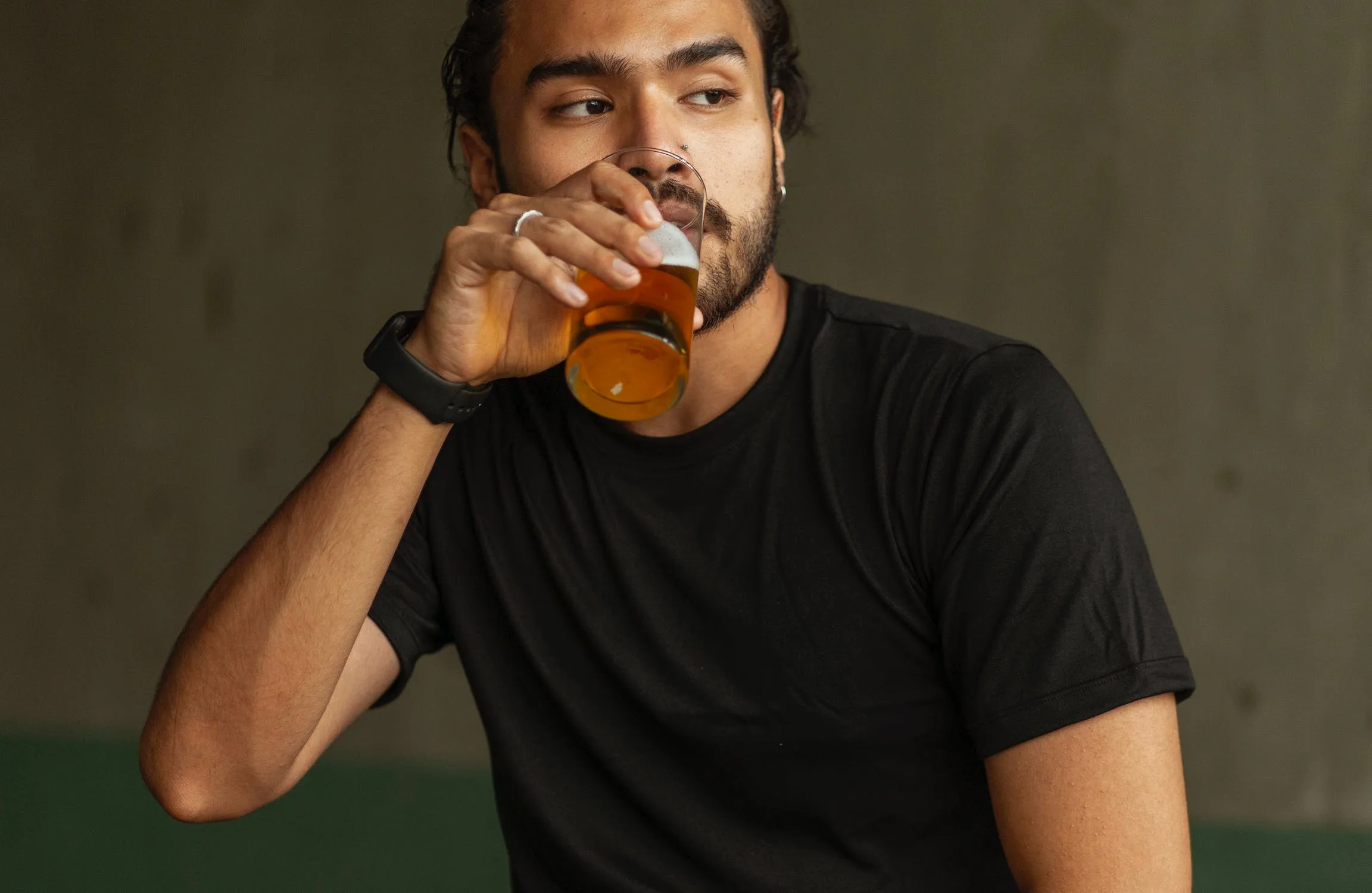Balancing Running and Drinking Alcohol
The short answer as to whether serious runners can drink alcohol is yes, they can. However, there are multiple things to consider first. Before you decide whether drinking alcohol is right for you, you should understand the effects that alcohol can have on your body, and therefore your performance, as well as how to maintain a balanced alcohol intake.
For example, alcohol can lead to dehydration. This is critical for runners as staying hydrated is vital for peak performance. The effects of alcohol on muscle recovery are another factor, especially after longer runs or tough workouts. Alcohol can delay recovery time and dampen muscle growth due to reduced protein synthesis.
Alcohol also affects sleep quality, which is paramount for proper recovery. If we consider these consequences carefully then it’s easy to understand why responsible consumption of alcohol is so important as a runner.
Avoiding Binge Drinking
While the odd drink won’t significantly impact your performance – unless you drink before a run, which you should never do – drinking excessively in one sitting increases the risks associated with alcohol considerably more.
Binge drinking should be avoided by both serious runners and everyone else. Not addressing binge drinking issues can lead to alcohol addiction and severe health problems.
Rapid consumption can also impact reaction times and motor skills, which are crucial while running. A good rule of thumb states that moderate drinking should not exceed two standard drinks per day for men, and one standard drink per day for women. But as a serious runner who puts your health first, it is better to drink even less.
Sticking to a limited intake can help you manage the potential negative impacts of alcohol on your running performance and overall health.
Timing Alcohol Consumption
To be a runner who drinks responsibly, consider the timing of your drinks. It’s best to avoid alcohol during the 48 hours leading up to a run or race, for instance. Post-run alcohol choice matters too. Choosing lower-alcohol and non-sweet drink options prevents further dehydration and manages calorie intake.
Placing emphasis on hydration is key. For every alcoholic beverage you sip, pair it with an equal amount of water. This counteracts the dehydrating effects of the booze and maintains energy levels for future running sessions.
It’s Ultimately Your Choice
Can serious runners still enjoy a drink? It’s ultimately up to you and your personal goals. Some individuals might find performance benefits in abstaining from alcohol completely while others may enjoy the occasional drink.
Whether or not to abstain from drinking really comes down to your objectives as a runner. If you’re competing at high levels, pursuing intensive training plans, or aiming for strict personal goals, you may want to consider limiting or eliminating alcohol.
But if your approach is more about general well-being, moderate running goals, and maintaining a balanced lifestyle that includes socializing, consuming occasional alcoholic beverages is certainly an option.
It’s all about understanding yourself. You can then make the best decision for your individual running performance and overall health. Ultimately, informed decisions based on an understanding of the impacts of alcohol on performance are key. Whether this means rewarding yourself with a drink after a long run or holding off until after race day, moderation coupled with balance always proves beneficial.






